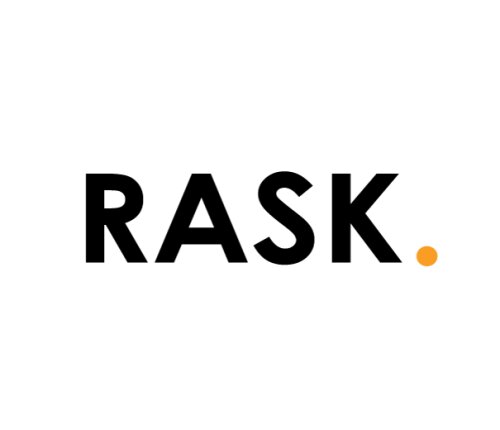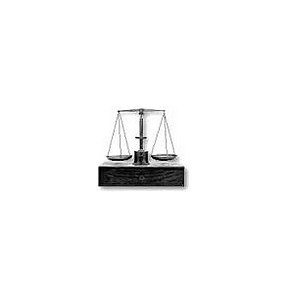Best Reinsurance Lawyers in Estonia
Share your needs with us, get contacted by law firms.
Free. Takes 2 min.
Or refine your search by selecting a city:
List of the best lawyers in Estonia
About Reinsurance Law in Estonia
Reinsurance is a crucial component of the insurance industry, providing a mechanism for insurers to manage risk by sharing potential liabilities with other insurers. In Estonia, the reinsurance market is governed by a combination of domestic regulations and European Union directives, ensuring stability and reliability in risk coverage. Local and international reinsurers operate within the Estonian market, collaborating with primary insurers to enhance their capacity to underwrite new policies and protect against catastrophic events.
Why You May Need a Lawyer
Legal expertise in reinsurance is invaluable for navigating complex transactions and disputes effectively. Some common scenarios where legal advice might be required include:
- Drafting and reviewing reinsurance contracts to ensure clarity and compliance.
- Handling disputes related to coverage and claims settlement between insurers and reinsurers.
- Navigating regulatory compliance issues, including licensing and adherence to the Insurance Activities Act.
- Facilitating mergers, acquisitions, or partnerships involving reinsurance entities.
- Understanding the tax implications and financial structuring involved in reinsurance treaties.
Local Laws Overview
Estonia's legal framework for reinsurance is shaped by several key elements:
- Insurance Activities Act: This act establishes the fundamental regulations governing the insurance and reinsurance industries, including licensing requirements, operating standards, and solvency obligations.
- Financial Supervision Authority (FSA): The FSA regulates and supervises the insurance sector, ensuring compliance with legal standards and safeguarding the interests of policyholders.
- EU Reinsurance Directive: As a member of the European Union, Estonia implements EU directives that influence reinsurance practices, promoting harmonization and a single market for insurance services.
- Contract Law: General contract law principles apply to reinsurance agreements, emphasizing the importance of clear terms, mutual consent, and fulfillment of obligations.
Frequently Asked Questions
What is the role of a reinsurer?
A reinsurer assumes part of the risk held by an insurance company, allowing the insurer to underwrite more policies and manage its risk exposure more effectively.
Are reinsurance contracts subject to the same regulations as primary insurance contracts in Estonia?
While reinsurance contracts are subject to specific industry regulations, they generally enjoy more flexibility in terms of terms and conditions, compared to primary insurance contracts.
How do I know if a reinsurance company is authorized to operate in Estonia?
The Financial Supervision Authority in Estonia provides an online registry of authorized insurance and reinsurance companies operating within the country.
What should I consider when drafting a reinsurance contract?
Key considerations include the scope of coverage, terms and duration, claim procedures, dispute resolution mechanisms, and regulatory compliance.
Can disputes between insurers and reinsurers be resolved through arbitration in Estonia?
Yes, arbitration is a common and often preferred method for resolving disputes in reinsurance contracts due to its confidentiality and efficiency.
How does the EU Reinsurance Directive affect Estonian reinsurance practices?
The Directive establishes minimum standards for reinsurance operations across the EU, influencing licensing, capital requirements, and regulatory oversight in Estonia.
What impact does cross-border reinsurance have on Estonian companies?
Cross-border reinsurance allows Estonian companies to collaborate with international reinsurers, optimizing risk management and financial stability.
Is it necessary to have a lawyer for negotiating reinsurance contracts?
While not legally required, having a lawyer can ensure that contracts are comprehensive, compliant, and protect the interests of the parties involved.
What happens if a reinsurer fails to meet its financial obligations?
In such cases, legal recourse is available to seek compensation, and the role of the Financial Supervision Authority becomes critical in enforcing regulatory compliance.
How can changes in legislation affect existing reinsurance agreements?
Significant legal changes may require renegotiation or amendment of existing contracts to maintain compliance and reflect updated terms.
Additional Resources
The following resources can be useful for those seeking further information or assistance:
- Financial Supervision Authority (FSA): The regulatory body overseeing reinsurance activities in Estonia.
- Estonian Insurance Association: Offers industry insights, publications, and guidance on insurance and reinsurance matters.
- European Insurance and Occupational Pensions Authority (EIOPA): Provides information on EU regulations impacting reinsurance operations.
- Local law firms: Experienced in reinsurance law, offering legal advice and contract assistance.
Next Steps
If you need legal assistance in reinsurance, consider the following steps:
- Identify and engage a legal expert specializing in reinsurance to assess your situation.
- Gather all relevant documents, including contracts and correspondence related to your reinsurance needs or issues.
- Discuss and outline your objectives and concerns with your lawyer to establish a clear legal strategy.
- Consider mediation or arbitration as potential avenues to resolve disputes efficiently and economically.
- Stay informed on regulatory changes by subscribing to updates from relevant Estonian and EU bodies.
Lawzana helps you find the best lawyers and law firms in Estonia through a curated and pre-screened list of qualified legal professionals. Our platform offers rankings and detailed profiles of attorneys and law firms, allowing you to compare based on practice areas, including Reinsurance, experience, and client feedback.
Each profile includes a description of the firm's areas of practice, client reviews, team members and partners, year of establishment, spoken languages, office locations, contact information, social media presence, and any published articles or resources. Most firms on our platform speak English and are experienced in both local and international legal matters.
Get a quote from top-rated law firms in Estonia — quickly, securely, and without unnecessary hassle.
Disclaimer:
The information provided on this page is for general informational purposes only and does not constitute legal advice. While we strive to ensure the accuracy and relevance of the content, legal information may change over time, and interpretations of the law can vary. You should always consult with a qualified legal professional for advice specific to your situation.
We disclaim all liability for actions taken or not taken based on the content of this page. If you believe any information is incorrect or outdated, please contact us, and we will review and update it where appropriate.
Browse reinsurance law firms by city in Estonia
Refine your search by selecting a city.














